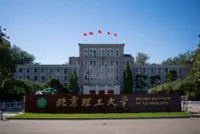Researchers at Yale University in the USA are working on small, soft, modular robots that can fuse together or self-amputate parts as required. — The Faboratory at Yale University on YouTube/AFP Relaxnews
Researchers at Yale University, US, are working on small, soft, modular robots, capable of assembling or, on the contrary, detaching parts depending on the situations and spaces in which they are operating. This could open up new perspectives in robotics.
The Faboratory is a Yale University laboratory dedicated to innovation, specialising in materials and robotics. Here, a new kind of robot has been developed. Flexible and made of silicone, these robots are capable of fusing together or self-amputating parts if necessary.
Inspired by the regenerative abilities of certain animals, such as lizards, these robots can get rid of damaged parts and then fuse with replacement modules at a later date. This innovation paves the way for robots that are both autonomous and resilient, capable of adapting to any environment.
Still in the experimental stage, these robots are learning to adapt to their environment in the laboratory. For example, they are able to detach and reattach body parts connected by an adhesive polymer that reacts to heat.
This material acts as a reversible seal, solidifying or melting according to temperature, so that the robots can be assembled or separated without human intervention. This technology enables these robots to navigate in confined spaces or to adapt to unpredictable environmental conditions.
At this stage, the robots are not yet autonomous, nor capable of carrying or pulling loads, but the concept paves the way for new prospects in robotics, particularly for rescue operations, for space or underwater exploration, and even for medical applications.
The self-amputation and interfusing capabilities of these robots could offer flexible, adaptive solutions, ready to adapt to the most challenging environments.
To demonstrate their abilities, two videos have been posted online. The first shows a flexible quadruped robot that self-amputates a limb when it gets stuck. In the second, a group of three flexible crawling robots fuse together to cross a ditch.
This research is published in the journal, Advanced Materials. – AFP Relaxnews





